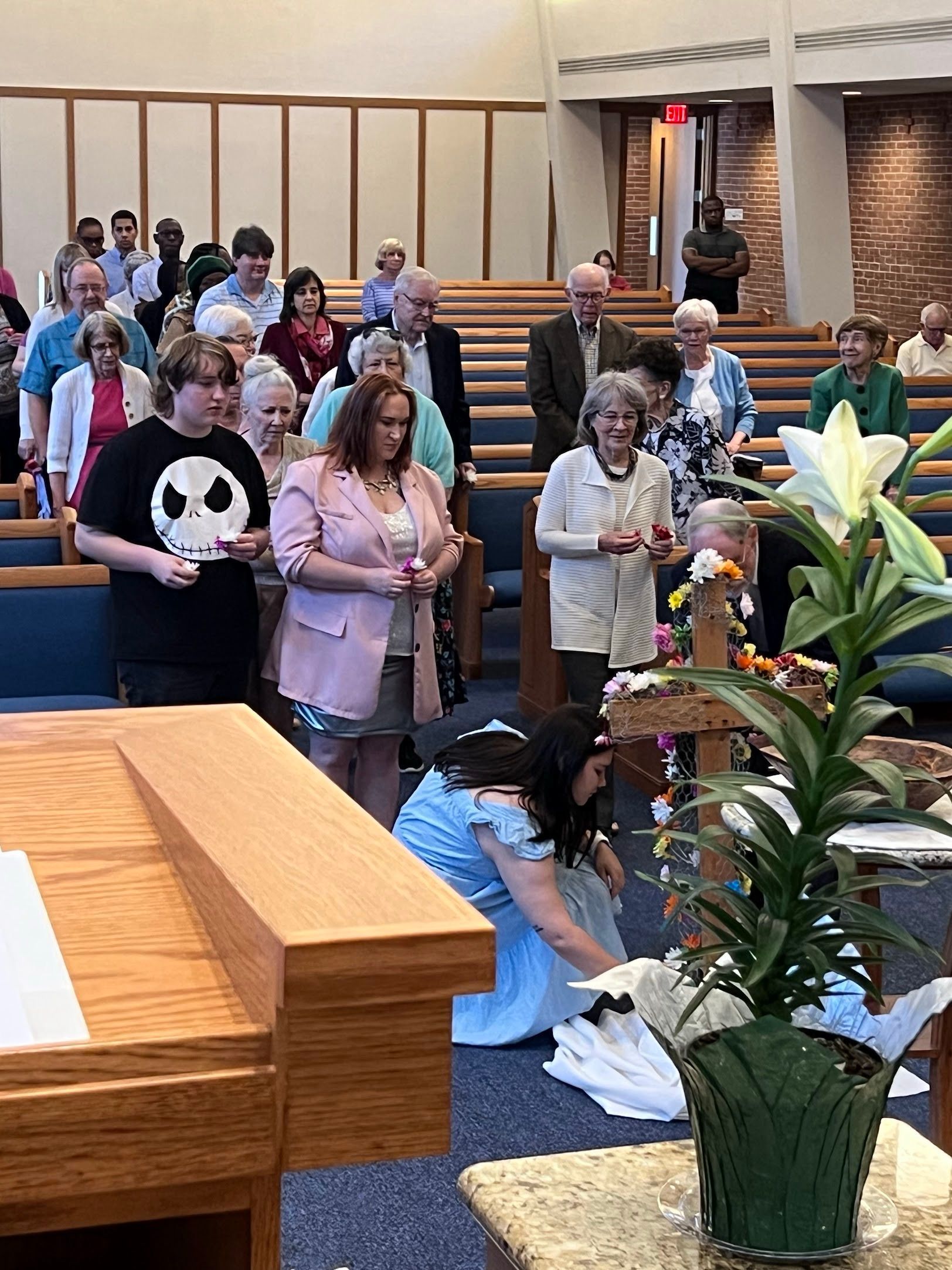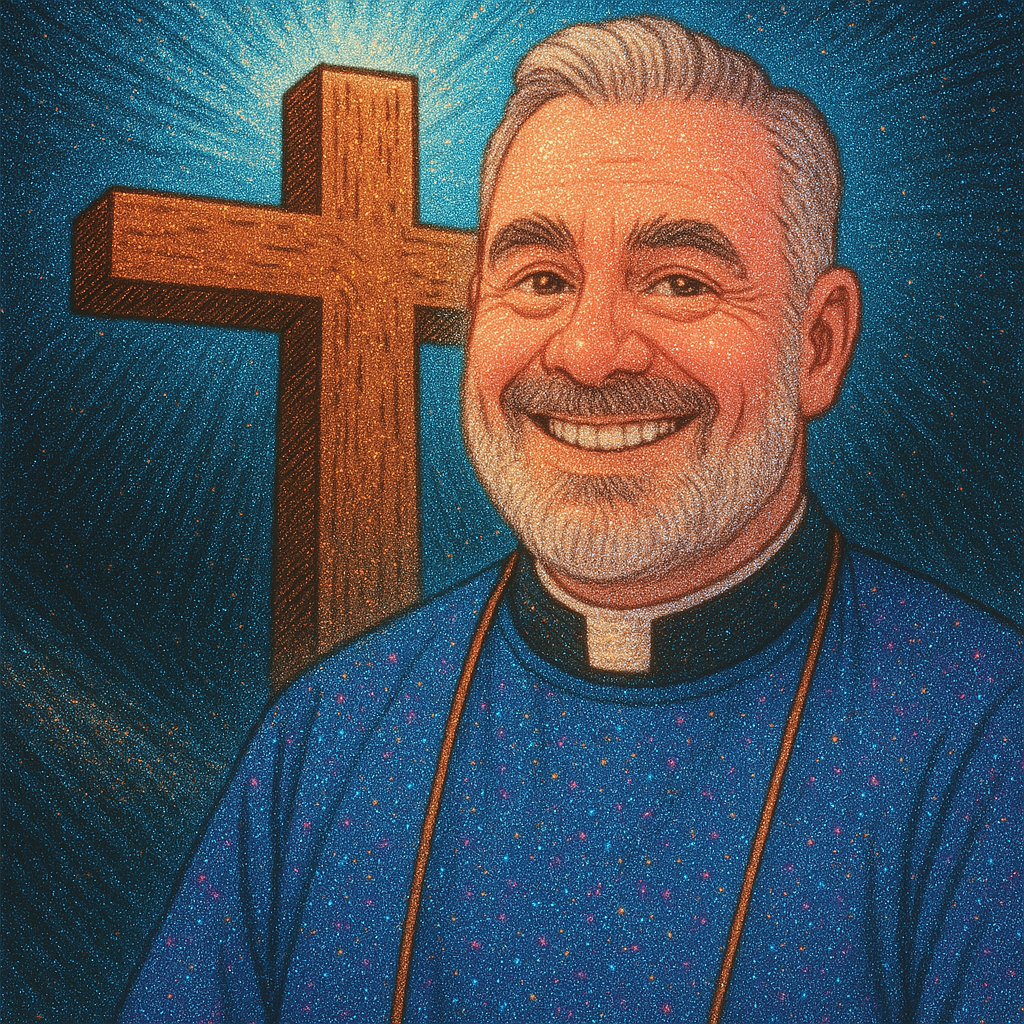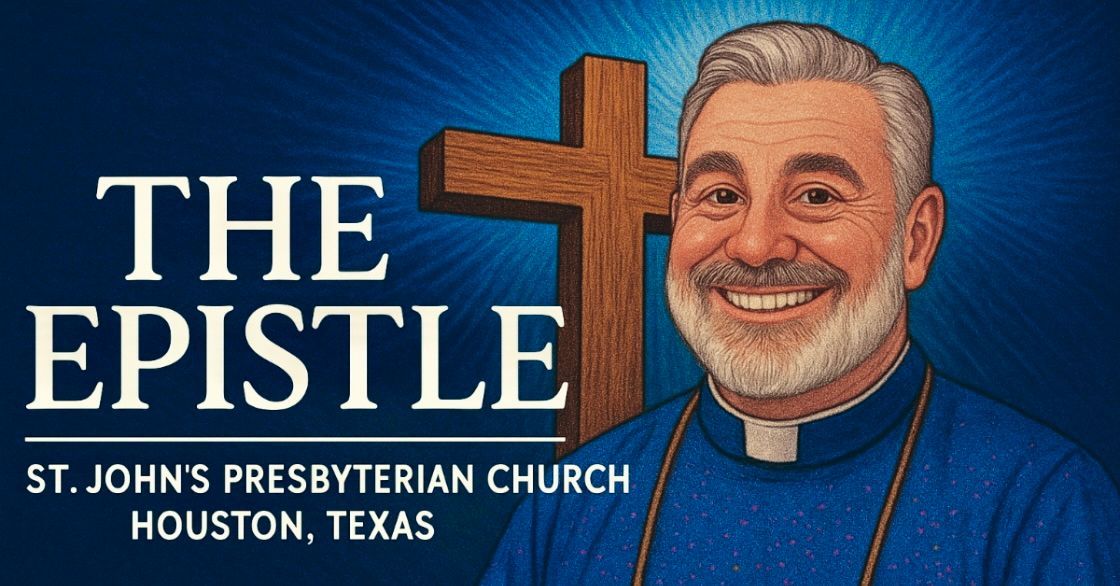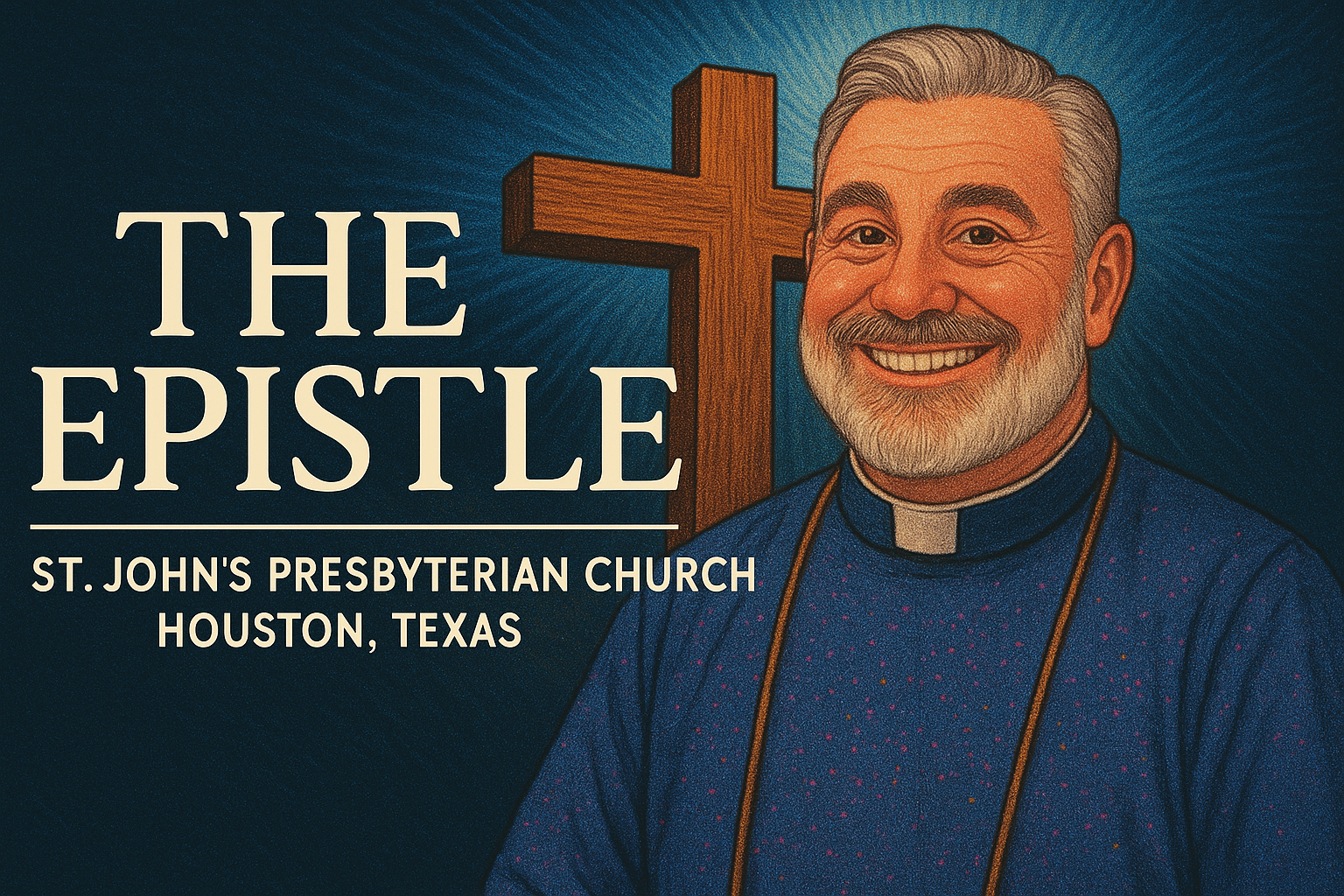Presbyterian Theology Houston: How Core Beliefs Shape Worship at St. John's
I've been a pastor long enough to recognize the glazed look people get when someone mentions theology. Their eyes drift. They shift in their seats. They start thinking about lunch.
But here's the thing about theology: it's not abstract ideas floating in academic clouds. Theology shapes everything about how we worship, pray, and live as Christians. And if you're going to understand what happens on Sunday morning at St. John's Presbyterian Church in Houston, you need to understand a few core Reformed beliefs that make us who we are.
Don't worry. I'm not going to make you memorize the Westminster Confession or quiz you on five-point Calvinism. But I do want to show you how what we believe changes how we worship. Because theology isn't just what you think. It's what you do.
God's Sovereignty: Why Worship Centers on God, Not Us
Let me start with the big one: God's sovereignty.
Presbyterians believe God is in control of history and our individual lives. This isn't fatalism, where we shrug and say "whatever happens, happens." It's the confidence that our lives have meaning and purpose because they're held within God's larger story.
Think about that for a second. In Houston's frantic pace, where everyone's chasing the next promotion or trying to keep up with explosive growth, this matters. Your life isn't random. Your struggles aren't meaningless. Your joys aren't accidental. God is weaving everything into a story that's bigger than what you can see from your particular moment in time.
This belief shapes our worship fundamentally. When we gather on Sunday morning at St. John's, we're not primarily focused on getting our needs met or having a religious experience. We're focused on God.
I've visited Houston churches where worship feels more like a concert designed to make you feel inspired. Professional lighting. Emotional music building to crescendos. Messages that leave you pumped up for the week ahead.
There's nothing wrong with feeling inspired. But that's not why we worship.
We worship because God is worthy. Because the Creator of the universe, who holds galaxies in place and knows every sparrow that falls, deserves our attention, our praise, our lives. Our feelings about worship matter less than the reality of who God is.
This shifts everything. When worship isn't about us, we can bring our whole selves to it. The good weeks and the terrible ones. The moments of soaring faith and the seasons of grinding doubt. We don't have to manufacture religious feelings to make worship "work." We just have to show up and acknowledge the God who's already there.
At St. John's, this plays out practically. Our prayers don't focus primarily on our personal needs (though we certainly bring those). We start by acknowledging who God is. Our sermons don't begin with your felt needs and then find Bible verses to address them. We start with Scripture and let it challenge our assumptions about what we think we need.
The sovereignty of God also means we can be honest about struggle. If God's in control, we don't have to pretend everything's fine. We can lament. We can question. We can bring our hardest questions to worship because we trust God's big enough to handle them.
Grace Alone: Why We Can Be Honest About Failure
Here's the second big Presbyterian belief: we're saved by God's grace alone, not by our own efforts or goodness.
This might sound obvious. Every Christian church talks about grace, right? But Presbyterians take this seriously in ways that shape how we actually worship together.
If we're saved by grace, not performance, then worship becomes a place where we can be honest about failure. We don't have to maintain appearances or pretend we've got it all together. The Presbyterian confession of sin isn't a quick "sorry God" tacked onto the beginning of worship. It's a substantial moment where we name specific ways we've fallen short.
Last Sunday, our confession mentioned how we've ignored our neighbors' needs, pursued our own comfort over others' good, and participated in systems that harm vulnerable people. That's not comfortable. But it's honest.
And here's the beautiful part: immediately after confession comes assurance of pardon. Not "try harder next week." Not "maybe God will forgive you if you prove yourself." Just the clear declaration based on Scripture: you are forgiven. Christ's work is complete. There is now no condemnation for those in Christ Jesus.
Relief washes over the sanctuary when we hear those words. You can feel it.
This grace-centered approach distinguishes Presbyterian worship from what I call achievement spirituality. In Houston's competitive culture, it's easy for faith to become another area where you're trying to prove yourself. Read your Bible more. Pray harder. Serve more effectively. Climb the spiritual ladder.
But Presbyterian theology says that ladder's a lie. God's grace meets you right where you are. Your spiritual growth matters, absolutely. But it flows from grace already given, not from trying to earn grace through religious performance.
If you've been exploring various spiritual paths in Houston, trying to find something authentic, this matters. Many contemporary spirituality movements ultimately put the burden on you. Meditate more effectively. Practice mindfulness better. Achieve higher consciousness. It's all about your effort.
Presbyterian worship says God did the heavy lifting. Christ's death and resurrection accomplished salvation. The Spirit's work transforms lives. Your job isn't to achieve spiritual enlightenment through your own effort. It's to receive grace and let it change you.
In practical terms, this means worship at St. John's creates space for people at different stages of faith. Doubters welcome. Strugglers welcome. People who messed up badly last week welcome. Because we're all saved by grace, not by having everything figured out.
The Priesthood of All Believers: Why You Don't Need a Spiritual Elite
Third core belief: the priesthood of all believers.
This was one of the Reformation's revolutionary ideas. In the 16th century, the church had created a spiritual hierarchy where regular people needed priests to mediate God's presence. The Reformers said no. Every believer has direct access to God through Christ. No spiritual middlemen required.
This shapes Presbyterian worship in ways you might not notice at first.
When we pray, we don't pray through saints or special spiritual people. We pray directly to God, confident that God hears every prayer from every believer.
When we read Scripture, we trust that the Spirit can speak to anyone who reads it. You don't need a theology degree to understand the Bible's central message. You don't need special spiritual experiences to encounter God in Scripture.
When we make decisions as a church, we do it together through elected elders, not through a single pastor who has all the answers. Our Session (the governing body) includes regular members: accountants, teachers, nurses, retirees. They shepherd the congregation alongside teaching elders like me.
This creates a different dynamic than you'll find in churches with strong hierarchical leadership. At St. John's, your voice matters. Your insights count. Your questions deserve serious engagement. We're not asking you to sit passively and absorb whatever spiritual wisdom comes from the pulpit.
In Houston's diverse religious landscape, this matters more than you might think. If you've experienced churches where leaders seemed untouchable, where questioning was discouraged, where regular members had no real voice, Presbyterian polity offers something different.
We believe God distributes spiritual gifts throughout the body of Christ. The pastor doesn't have a monopoly on spiritual wisdom. God speaks through teachers, caregivers, administrators, encouragers, servers. Every member has something to contribute.
Practically, this means worship at St. John's involves more than just the pastor. Elders lead prayers. Members read Scripture. Laypeople share testimonies. Our community garden ministry, our work with Braes Interfaith Ministries, our support for Presbyterian Children's Homes and Services - all of this flows from members using their gifts, not from a pastor doing everything.
The Importance of Community:
Why Individual Spirituality Isn't Enough
Fourth core belief: faith requires community.
This might be the most countercultural aspect of Presbyterian theology in our individualistic age. You can't be a Christian by yourself. You need other believers.
I meet many people in Houston who describe themselves as "spiritual but not religious." They've given up on organized religion but still seek spiritual meaning. They meditate alone, read inspiring books, pursue personal growth. And they wonder why their spiritual life feels shallow.
Presbyterian theology says spiritual formation happens in community. You need other people to challenge your blind spots, encourage you during struggles, celebrate your joys, and hold you accountable. You need the perspectives of people who aren't you, who don't think like you, who see the world differently than you do.
This makes Presbyterian worship fundamentally corporate. Yes, we believe in personal devotion and private prayer. Those matter. But the heart of Christian life is gathered worship with other believers.
At St. John's, this plays out in tangible ways. We share prayer concerns during worship, naming specific struggles people face. We take communion together, passing bread and cup hand to hand. We sing hymns in four-part harmony, our voices blending imperfectly but authentically.
After worship, most people stay for coffee and conversation. Not because they're required to, but because these relationships matter. This is where you hear how someone's job search is going, how their mother's surgery went, what their teenager is struggling with this week.
This community focus connects directly to our mission work. We don't serve Houston's hungry as isolated individuals who happen to attend the same church. We work together, building relationships while we garden, sort food at the pantry, tutor kids, support refugee families.
The importance of community also shapes how we approach theology itself. We don't expect everyone to figure out their beliefs in isolation. We study Scripture together in Bible study groups. We wrestle with hard questions in conversation. We learn from Christians throughout history who've walked this path before us.
If you're interested in going deeper in Presbyterian theology and its implications for daily life, I've written several books exploring these themes. The Open Church: Faith that Welcomes Questions examines how authentic Christian community creates space for honest doubt and real questions. Stewardship: Faithful, Fruitful, and Flourishing explores how Reformed theology shapes how we live, not just what we believe.
How These Beliefs
Shape Actual Worship at St. John's
Let me get practical about what all this theology means when you walk into St. John's on Sunday morning.
Our worship follows a pattern that reflects these beliefs. We call it liturgy, but don't let that word intimidate you. Liturgy just means "the work of the people" - the things we do together when we worship.
We start with a call to worship that reminds us why we're gathered. Usually Scripture, often from the Psalms. Something like "The Lord is in his holy temple; let all the earth be silent before him." This centers us on God's sovereignty. We're here because God called us, not primarily because we chose to show up.
Then we sing together. Not just listening to excellent musicians (though ours are excellent). Actually singing. Hymns with theological depth alongside contemporary songs that express timeless truth. The priesthood of all believers means everyone participates.
We confess sin corporately. Not vague generalities, but specific ways we've fallen short. This reflects our belief that grace means we can be honest about failure.
We hear assurance of pardon immediately after confession. God's grace meeting us right where we are.
Scripture is read and proclaimed. Usually passages from both Old and New Testaments, showing how all of Scripture tells one unified story of God's redemption.
The sermon applies biblical truth to real life. Not motivational speaking with Bible verses sprinkled in, but serious engagement with what Scripture actually says and what it demands of us.
We pray for each other and the world. The importance of community means we lift up specific needs, not just generic blessings.
We offer our gifts back to God. Financially supporting the church's ministry flows from recognizing that everything we have is grace.
Sometimes we celebrate communion. The Lord's Supper embodies grace (God feeding us) and community (shared meal) in the most tangible way possible.
We receive a benediction sending us out to serve. Worship doesn't end when the service does. It equips us for faithful living all week long.
This structure isn't arbitrary. Every element reflects Reformed theology about who God is and who we are in relation to God.
Why Presbyterian Theology
Matters for Your Spiritual Journey
If you're exploring churches in Houston, you've got countless options. Megachurches with elaborate productions. Contemporary churches with casual vibes. Traditional churches with formal liturgies. Each serves different needs.
But here's why Presbyterian theology might matter for your spiritual journey.
If you're tired of superficial faith, Presbyterian worship offers depth. We take Scripture seriously. We engage history. We wrestle with hard questions. Faith isn't reduced to feeling good or thinking positive thoughts.
If you're weary of spiritual performance, Presbyterian grace offers relief. You don't have to prove yourself. You don't have to achieve certain spiritual states. God's grace meets you as you are.
If you've been hurt by authoritarian churches, Presbyterian polity offers shared leadership. No untouchable leaders. Real accountability. Your voice matters.
If you're lonely in your faith, Presbyterian community offers belonging. Not superficial friendliness, but genuine relationships formed through worship, study, and service together.
The Presbyterian tradition isn't perfect. No tradition is. We have our own blind spots, our own ways of getting things wrong. But after years of pastoral ministry in Houston, I've seen how Reformed theology creates space for authentic spiritual growth.
People come to St. John's carrying wounds from other churches. They've experienced manipulation. They've been told their doubts disqualify them. They've been pressured to perform. They've been spiritually exhausted by constant demands to do more, be more, achieve more spiritually.
Presbyterian theology offers a different way. God's sovereignty means your life has meaning even when you can't see it. Grace alone means you're loved without conditions. The priesthood of believers means you have direct access to God. Community means you don't walk this path alone.
For those interested in how Presbyterian theology connects to contemporary questions, particularly about artificial intelligence and God's sovereignty, my book Because You Had To: AI, Predestination, and the Sovereignty of Godexplores how ancient Reformed doctrine speaks to cutting-edge technology and modern anxieties about control.
Living Out Presbyterian Theology
Beyond Sunday
Theology isn't just about what happens during worship. It shapes how we live the rest of the week.
God's sovereignty means Monday morning at work matters just as much as Sunday morning at church. You're not living for the weekend or counting down to the next worship service. You're serving God right where you are, trusting that your work has purpose within God's larger story.
Grace alone means you can admit failures without fear. When you mess up at work, in relationships, with your kids, you don't have to cover it up or make excuses. You can confess, receive forgiveness, make amends, and move forward.
The priesthood of all believers means your spiritual life doesn't depend on experts. Yes, pastors and teachers help. But you can read Scripture yourself, pray yourself, discern God's leading yourself. You're responsible for your own spiritual growth.
The importance of community means how you treat your neighbors matters. Faith isn't just private beliefs. It's how you engage your neighborhood, your city, your world. At St. John's, this takes shape through our community garden, our food pantry partnerships, our support for families on the edge of homelessness through Presbyterian Children's Homes and Services.
Finding Your Place in Presbyterian Worship
If Presbyterian theology resonates with you, visiting St. John's Presbyterian Church is the next step.
We worship Sundays at 11:00 AM at 5020 West Bellfort Avenue in southwest Houston. Come as you are. Some people dress up, others wear jeans. What matters is your presence, not your wardrobe.
You'll find a sanctuary that feels like a sanctuary. No video screens dominating the room. No production elements competing for attention. Just a space prepared for worship.
The service lasts about 60 minutes. We follow the pattern I described earlier: call to worship, confession and pardon, Scripture and sermon, prayers and offering, benediction. It's ordered but not rigid, traditional but not stuffy.
After worship, stick around for coffee. Meet people. Ask questions. Discover whether this community might be where you belong.
And if you're not ready to visit yet, that's fine too. Keep exploring. Keep asking questions. Keep seeking authentic faith that engages both your mind and heart.
Reformed theology has sustained Christians for 500 years because it takes seriously both God's holiness and God's grace. It refuses to water down faith to make it more comfortable, but it also refuses to add human requirements to what God has already accomplished in Christ.
That balance is what we try to maintain at St. John's. Serious faith that engages real questions. Grace-centered community that accepts people as they are while calling them toward growth. Mission-focused service that puts faith into action. Worship that honors God while forming disciples.
For those interested in exploring contemplative practices within the Presbyterian tradition, When You Choose Silence: A Contemplative Journey into the Voice of God examines how silence and contemplation fit within Reformed spirituality. And Living the Lord's Prayer: A Group Study and Daily Devotional offers practical ways to deepen prayer life within a Presbyterian framework.
The Invitation Stands
Presbyterian theology shapes everything about how we worship at St. John's. God's sovereignty centers worship on God, not us. Grace alone frees us to be honest about failure. The priesthood of believers empowers everyone to participate. The importance of community prevents faith from becoming individualistic.
These aren't just abstract ideas. They're lived realities that shape how we pray, sing, serve, and relate to each other every week.
If you're searching for faith that engages your whole person - mind and heart, intellect and emotion, individual devotion and community commitment - Presbyterian worship might be exactly what you've been looking for.
The door's open. The community's welcoming. The theology's substantial. And God's grace is sufficient for wherever you're starting from.
Come and see what happens when Reformed theology comes to life in worship and service. We think you'll discover that theology matters more than you imagined.
Continue Exploring Faith at St. John's
Want to learn more about what makes St. John's Presbyterian unique? Check out these related articles:
Why St. John's Presbyterian Stands Out explores what makes our church different from Houston's crowded religious landscape. Discover how authentic community and mission focus create space for real spiritual growth.
Best Non-Mega Church in Houston examines why smaller congregations offer depth that larger productions can't match. If you're tired of being anonymous in the crowd, this article shows what intimate Christian community looks like.
Bible Study Houston: Where to Find Scripture Study That Goes Deeper guides you toward substantive Bible engagement beyond surface-level devotionals. Real transformation requires real engagement with Scripture.
What Makes Our Worship Unique takes you through a typical Sunday morning at St. John's, explaining how each element of worship connects to Presbyterian theology and practice.
Presbyterian Church Houston: What Makes Our Worship Unique provides another perspective on distinctive aspects of Presbyterian worship, helping newcomers understand what to expect.
Easter Service Houston: Worship and Celebration at St. John's Presbyterian describes how we approach Easter differently from many Houston churches, focusing on resurrection truth over production spectacle.
Do Presbyterians Allow Female Pastors? addresses a question many ask when exploring Presbyterian churches, explaining denominational differences and what they mean for church life.
Each article offers practical guidance for finding authentic Christian community in Houston's diverse church landscape. We're not trying to convince you we're perfect. We're just trying to be honest about who we are and what we believe, trusting that honesty attracts the people who'll thrive in our community.
St. John's Presbyterian Church isn't for everyone. But if you're seeking theology that matters, worship that transforms, and community that cares, we might be exactly what you've been looking for.





